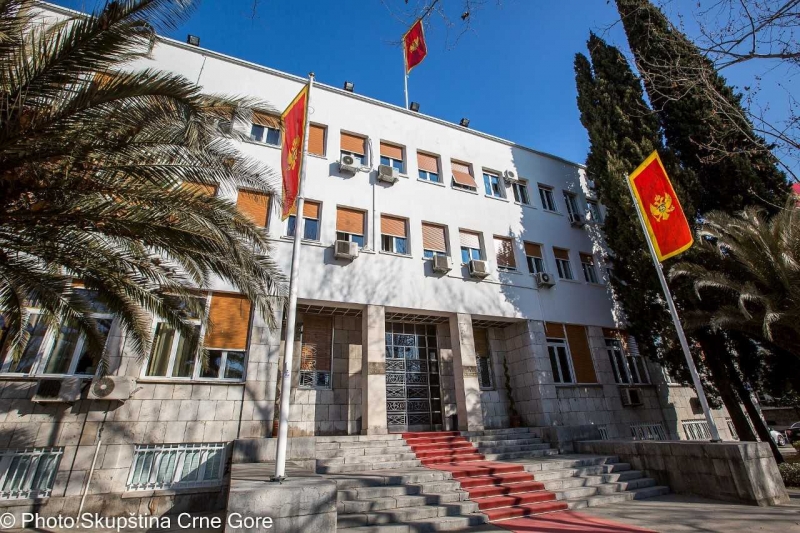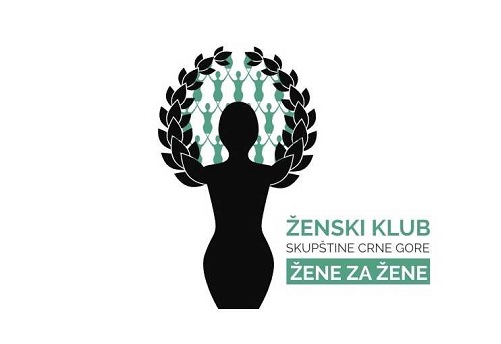Metodologija MANS-a nedostatna, javnost netačno informisana
Imajući u vidu netačne navode u tekstovima koje ovih dana objavljuju crnogorski mediji, a koji se oslanjaju na izvještaje nevladine organizacije Mreža za afirmaciju nevladinog sektora – MANS, u nastavku objavljujemo reagovanje u cilju potpunog i istinitog informisanja javnosti.
- Rad Skupštine Crne Gore je javan i posebna pažnja se posvećuje njegovoj otvorenosti i dostupnosti. Princip javnosti se ogleda u saradnji sa civilnom sektorom, čiji predstavnici mogu prisustvovati sjednicama radnih tijela, kao i objavljivanju relevantnih informacija i dokumenata nastalih u radu parlamenta na skupštinskoj internet stranici, objavljivanju strateških dokumenata, godišnjih i drugih izvještaja o radu, finansijskih izvještaja, biltena i drugih publikacija, zatim direktnom televizijskom prenosu te kolektivnim i individualnim posjetama građana.
U skladu sa takvom poslovnom politikom, aktivisti NVO MANS-a naišli su na otvorena vrata i dobrodošlicu u toku svojih višegodišnjih projekata monitoringa rada Skupštine Crne Gore.
Međutim, ono što je iznenadilo u dva posljednja MANS-ova izvještaja, je korišćenje nedostatne i u najmanju ruku upitne metodologije koja je, inače, mjerljive i opipljive rezultate, učinila netačnim i na taj način dovela javnost u zabludu, na više nivoa.
Naime, redovno zasijedanje u crnogorskom parlamentu se odvija dva puta godišnje, u skladu sa Ustavom Crne Gore. Prvo redovno zasijedanje počinje prvog radnog dana u martu i traje do kraja jula, a drugo prvog radnog dana u oktobru i traje do kraja decembra.
U Izvještaju MANS-a analiziran je period od novembra 2017. godine do aprila 2018. godine i od maja do oktobra 2018. godine, što ukazuje da su preskočeni oktobar 2017, novembar i decembar 2018. godine, kada traju redovna plenarna zasijedanja, a analizirani su vremenski periodi kada nema redovnih plenarnih sjednica - avgust i septembar 2018. godine, što metodologiju rada u najmanju ruku čini upitnom.
Istina je da je u toku perioda od 1. januara do 31. decembra 2018. godine održano 20 sjednica redovnog zasijedanja i tri sjednice vanrednog zasijedanja. Od toga, prvo redovno zasijedanje je trajalo ukupno 159 sati, 5 minuta i 46 sekundi podijeljeno u 35 dana (nisu uračunate sjednice koje su održane na Cetinju). Tokom drugog redovnog zasijedanja, radilo se 122 sata, 17 minuta i 47 sekundi (nije uračunata sjednica koja je održana na Cetinju).
Takođe, prvo vanredno zasijedanje trajalo je 10 sati, 9 minuta i 5 sekundi u jednom danu. Drugo vanredno zasijedanje 8 sati, 2 minuta i 45 sekundi, a treće 1 sat, 43 minuta i 42 sekunda u jednom danu (iskazano vrijeme se odnosi na period dok poslanici govore, odnosno, ne računa se vrijeme dok je pauza).
Minule godine, održane su i tri sjednice na Cetinju i to: Prva sjednica Prvog redovnog zasijedanja, Sedma sjednica Prvog redovnog (proljećnjeg) zasijedanja i Prva sjednica Drugog redovnog (jesenjeg) zasjedanja.
Dalje, MANS-ov Izvještaj ne prepoznaje kontrolnu funkciju Skupštine koja se, između ostalog, vrši kroz institute premijerskog sata i poslaničkih pitanja.
Tokom 2018. godine, održano je ukupno osam posebnih sjednica Skupštine posvećenih premijerskom satu (tri sjednice) i poslaničkim pitanjima (pet sjednica). Tim povodom, predsjedniku Vlade je postavljeno 38 pitanja, a članovima Vlade 307 pitanja.
MANS-ov Izvještaj je faličan i u dijelu analize rada na amandmanima jer ih tretira jedino kroz rad u plenumu, ne vodeći računa da se o amandmanima raspravlja na sjednicama radnih tijela, a na plenumu se nastavlja pretres u pojedinostima u okviru kojeg se raspravlja o amandmanskim rješenjima, bez obzira da li su sastavni dio predloga akta ili ne.
Tačni podaci ukazuju da su radna tijela u kojima rade poslanici od 1. januara do 30. novembra 2018. godine radila intenzivno i to:
- Ustavni odbor - dvije sjednice u ukupnom trajanju od dva sata,
- Zakonodavni odbor - 26 sjednica u ukupnom trajanju od 17 sati i 7 minuta,
- Odbor za politički sistem, pravosuđe i upravu - 30 sjednica u trajanju od 25 sati 10 minuta,
- Odbor za bezbjednost i odbranu - 18 sjednica u trajanju od 22 sata i 10 minuta,
- Odbor za međunarodne odnose i iseljenike – 21 sjednica u trajanju 17 sati i 5 minuta,
- Odbor za evropske integracije – 11 sjednica u trajanju od 14 sati i 20 minuta,
- Odbor za ekonomiju, finansije i budžet – 22 sjednice u trajanju od 17 sati i 25 minuta,
- Odbor za ljudska prava i slobode – 10 sjednica u trajanju od 11 sati i 55 minuta,
- Odbor za rodnu ravnopravnost – 18 sjednica u trajanju od 27 sati i 45 minuta,
- Odbor za turizam, poljoprivredu, ekologiju i prostorno planiranje – 18 sjednica u trajanju od 15 sati i 45 minuta,
- Odbor za prosvjetu, nauku, kulturu i sport – 16 sjednica u trajanju od 17 sati i 25 minuta,
- Odbor za zdravstvo, rad i socijalno staranje – 16 sjednica u trajanju od 13 sati i 20 minuta,
- Odbor za antikorupciju – 5 sjednica u trajanju od 4 sata i 30 minuta,
- Administrativni odbor – 25 sjednica u trajanju od 26 sati i 45 minuta,
- Komisija za praćenje i kontrolu postupka privatizacije – 4 sjednice u trajanju od 2 sata i 50 minuta.
To znači da su radna tijela održala ukupno 242 sjednice u trajanju od 236 sati i 32 minuta, u okviru kojih su održana i dva kontrolna i 24 konsultativna saslušanja.
Takođe, u pojedinačnom ocjenjivanju takozvanog indeksa „aktivnosti“ poslanika, nije metodološki ispravno mjeriti rad predsjednika i potpredsjednika Skupštine Crne Gore sa ostalim poslanicima jer oni predsjedavaju sjednicima, što takođe predstavlja rad koji ne može imati i polemički karakter, što rad poslanika podrazumijeva, a što u spornom Izvještaju analitičari prenebregavaju.
Sporni Izvještaj MANS-a ne prepoznaje ni statistiku koja se bavi međunarodnim aktivnostima poslanika, koje su takođe dio njihovih redovnih poslova. Poslanici su u izvještajnom periodu imali veliki broj aktivnosti u okviru stalnih delegacija pri Parlamentarnoj skupštini NATO-a, Parlamentarnoj skupštini OEBS-a, Stalnoj delegaciji pri PSSE, Stalnoj delegaciji pri Parlamentarnoj skupštini SEECP, Stalnoj delegaciji pri CEI PD, Jadransko jonskoj inicijaivi i COSAP-u i drugim oblicima multilateralne saradnje na parlamentarnom nivou.
S druge strane, Služba Skupštine Crne Gore analizira rad poslanika i radnih tijela i egzaktni podaci se objavljuju svake godine u godišnjim izvještajima. Međutim, aktivisti i analitičari MANS-a ne samo da nisu prisustvovali svim sjednicima radnih tijela, niti su citirali podatke iz zvaničnih izvještaja, već se nisu pozvali ni na Zakon o slobodnom pristupu informacijama, kako bi zatražili podatke neophodne za sačinjavanje istinitog i nepristrasnog dokumenta.
Sporni Izvještaj MANSA-a je rađen u okviru projekta „Unapređenje parlamentarnog nadzora i odgovornosti u Crnoj Gori“, uz podršku Demokratskog fonda Ujedinjenih nacija – UNDEF.
* * *
The methodology of MANS is lacking, the public is misinformed
Bearing in mind the incorrect allegations in the texts of the Montenegrin media which are being published these days, and which rely on the reports by the NGO Network for Affirmation of Non-governmental Sector (MANS), we are publishing a reaction below, in order to inform the public in a complete and truthful manner.
- The work of the Parliament of Montenegro is public and special attention is paid to its being open and available. The principle of publicity is reflected in our cooperation with the civil sector, whose representatives can attend meetings of our working bodies, as well as in the publishing of relevant information and documents produced during work on our Parliament’s website, publishing of strategic documents, annual and other types of performance reports, financial reports, newsletters and other types of publications, as well as live broadcasting and collective and individual visits by the citizens.
In accordance with such business policy, the activists of the NGO MANS encountered open doors and hospitality during their multi-annual projects of monitoring the work of the Parliament of Montenegro.
However, what surprised us was that, in the past two reports by MANS, the use of insufficient and, to say the least, questionable methodology which made otherwise measurable and tangible results incorrect and thus misled the public, on several levels.
Namely, the ordinary session of the Montenegrin Parliament is held twice per year, in accordance with the Constitution of Montenegro. The first ordinary session starts on the first working day of March and lasts until the end of July, while the second ordinary session starts on the first working day of October and lasts until the end of December.
The MANS report analyses the period from November 2017 to April 2018, and from May to October 2018, which indicates that October 2017 and November and December 2018 were skipped, when ordinary plenary sessions are being held, while the periods without ordinary plenary sittings were analysed - August and September 2018, making the work methodology at the very least questionable.
The truth is that, in the period from 1 January to 31 December 2018, 20 sittings of the ordinary session and three sittings of the extraordinary session were held. Out of this number, the first ordinary session lasted in total 159 hours five minutes and 46 seconds, divided over the period of 35 days (this does not include sittings held in Cetinje). During the second ordinary session, there was 122 hours 17 minutes and 47 seconds of work (this does not include a sitting held in Cetinje).
Furthermore, the first extraordinary session lasted ten hours nine minutes and five seconds in one day. The second extraordinary session lasted eight hours two minutes and 45 seconds, while the third lasted one hour 43 minutes and 42 seconds in one day (the time shown relates to the period while the MPs speak, i.e. does not include break times).
In the previous year, there were also three sittings held in Cetinje, as follows: First Sitting of the First Ordinary Session, Seventh Sitting of the First Ordinary (Spring) Session, and First Sitting of the Second Ordinary (Autumn) Session.
Furthermore, the MANS report does not recognise the control role of the Parliament which, among other things, is performed through the mechanisms of the Prime Minister’s hour and parliamentary questions.
In 2018, a total of eight special sittings of the Parliament dedicated to the Prime Minister’s hour (three sittings) and parliamentary questions (five sittings) were held. On that occasion, the Prime Minister was asked 38 questions, while members of the Government were asked 307.
The MANS report is also lacking in the part of analysis of work on amendments, because it is covering them only through the work in the plenary sittings, not taking into account that the amendments are also discussed in the meetings of working bodies. And then the debate in detail is continued in the plenary sitting, within which the amending solutions are discussed, whether being an integral part of the proposal for act or not.
The correct data shows that, from 1 January to 30 November 2018, the working bodies in which MPs work worked intensively, as follows:
- Constitutional Committee - two meetings, for a total of two hours,
- Legislative Committee - 26 meetings, for a total of 17 hours and seven minutes,
- Committee on Political System, Judiciary and Administration - 30 meetings, for a total of 25 hours and ten minutes,
- Security and Defence Committee - 18 meetings, for a total of 22 hours and ten minutes,
- Committee on International Relations and Emigrants - 21 meetings, for a total of 17 hours and five minutes,
- Committee on European Integration - 11 meetings, for a total of 14 hours and 20 minutes,
- Committee on Economy, Finance and Budget - 22 meetings, for a total of 17 hours and 25 minutes,
- Committee on Human Rights and Freedoms - ten meetings, for a total of 11 hours and 55 minutes,
- Gender Equality Committee - 18 meetings, for a total of 27 hours and 45 minutes,
- Committee on Tourism, Agriculture, Ecology and Spatial Planning - 18 meetings, for a total of 15 hours and 45 minutes,
- Committee on Education, Science, Culture and Sports - 16 meetings, for a total of 17 hours and 25 minutes,
- Committee on Health, Labour and Social Welfare - 16 meetings, for a total of 13 hours and 20 minutes,
- Anti-corruption Committee - five meetings, for a total of four hours and 30 minutes,
- Administrative Committee - 25 meetings, for a total of 26 hours and 45 minutes,
- Commission for Monitoring and Control of the Privatisation Procedure - four meetings, for a total of two hours and 50 minutes,
This means that the working bodies held a total of 242 meetings lasting 236 hours and 32 minutes, which includes two control and 24 consultative hearings.
Furthermore, within the individual marking of the so-called MP “activity” index, it is not methodologically correct to measure the work of the President and vice presidents of the Parliament of Montenegro against other MPs because they chair the sittings, which also represents work that cannot also be argumentative in nature, which is implied for the work of MPs, and which the analysts neglected in the contested report.
The contested MANS report also does not recognise the statistics dealing with international activities of MPs, which are also a part of their regular tasks. In the reporting period, the MPs had numerous activities within permanent delegations to the NATO Parliamentary Assembly, OSCE Parliamentary Assembly, Permanent Delegation to the PACE, Permanent Delegation to the SEECP Parliamentary Assembly, Permanent Delegation to the CEI PD, Adriatic-Ionian Initiative, and COSAP as well as other types of parliamentary multilateral cooperation.
On the other hand, the Service of the Parliament of Montenegro analyses the work of MPs and working bodies and the exact data is published every year in our annual reports. However, activists and analysts of MANS not only did not attend all meetings of the working bodies, nor did they quote the data from the official reports, but they did not even invoke the Law on Free Access to Information in order to request the data necessary for making a truthful and unbiased document.















